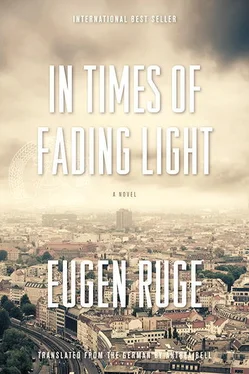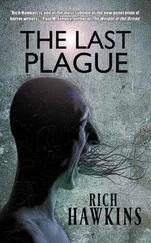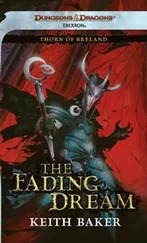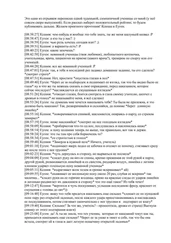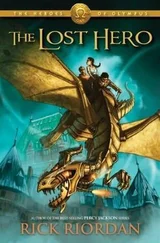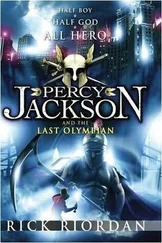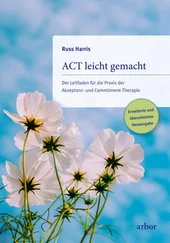The biker will move his queen to b6, and at the moment when the biker has made his move, Alexander will realize that he isn’t concentrating hard enough to counter this blatantly awkward attack, hardly to be taken seriously, on the easily exposed position of his king that he allowed by opening with f2–f4.
After the game of chess, which he will have given up after the seventeenth move, he will lie in the hammock outside the door of his room. He will push himself off from the terrace parapet with his fingertips, will feel his sinews and muscles, weary from his run, and while the force of gravity takes him in its arms, all kinds of thoughts will be racing around in his head, out of control; he will think of Columbus, who brought the hammock to Europe, and for a moment it will appear to Alexander, briefly, as a great discovery that when, at the sight of the Indian hanging bed, Columbus saw it as nothing but an efficient way of stacking up sailors on board ship, that might be one of the greatest of all misunderstandings between the two cultures; he will also wonder whether he ought to have moved his bishop to d5 at once; yet again he will think of the ugly pullover, darned several times in a color that didn’t quite match, and he will wonder why it is so good, even comforting, to remember it.
Then the palm fronds will have stopped rustling. The shouting and laughter from the village and the clattering in the guesthouse kitchen will have died down. Car engines will be silent, and so will the voices coming from the radio that otherwise waft up here at all times of day from the loudspeakers in the branch of a bank that has just been opened here.
Only the creaking of the hemp ropes will still be audible. And the indifferent, distant roar of the sea.
Eugen Ruge was born in the Urals, studied mathematics in Berlin, and became a member of the research staff at the Central Institute for Geophysics in Potsdam. Before leaving the GDR for the West in 1988 he was a writer, contributing to documentaries made at the state-owned DEFA Studios. Since 1989 he has been writing and translating for theaters and broadcasters, and he teaches periodically at the Berlin University of the Arts. He was honored with the Alfred Döblin Prize in 2009 for his then still unpublished first work of prose, In Times of Fading Light, which won the German Book Prize and the Aspekte Literature Prize, has sold more than 450,000 copies in Germany, and has been translated into twenty languages.
Anthea Bell is a freelance translator from German and French. Her translations include works of fiction and general nonfiction, books for young people, and classics by E. T. A. Hoffmann, Freud, Kafka, and Stefan Zweig. She has won a number of translation awards in the United Kingdom and the United States.
The Lannan Translation Series
Funding the translation and publication of exceptional literary works
The Scattered Papers of Penelope by Katerina Anghelaki-Rooke, edited and translated from the Greek by Karen Van Dyck
The Last Brother by Nathacha Appanah, translated from the French by Geoffrey Strachan
The Accordionist’s Son by Bernardo Atxaga, translated from the Spanish by Margaret Jull Costa
The Lovers of Algeria by Anouar Benmalek, translated from the French by Joanna Kilmartin
The Star of Algiers by Aziz Chouaki, translated from the French by Ros Schwartz and Lulu Norman
Child Wonder by Roy Jacobsen, translated from the Norwegian by Don Bartlett with Don Shaw
A House at the Edge of Tears by Vénus Khoury-Ghata, translated from the French by Marilyn Hacker
Nettles by Vénus Khoury-Ghata, translated from the French by Marilyn Hacker
She Says by Vénus Khoury-Ghata, translated from the French by Marilyn Hacker
A Wake for the Living by Radmila Lazic, translated from the Serbian by Charles Simic
June Fourth Elegies by Liu Xiaobo, translated from the Chinese by Jeffrey Yang
No Shelter by Pura López-Colomé, translated from the Spanish by Forrest Gander
The Life of an Unknown Man by Andreï Makine, translated from the French by Geoffrey Strachan
New European Poets , edited by Wayne Miller and Kevin Prufer
Look There by Agi Mishol, translated from the Hebrew by Lisa Katz
I Curse the River of Time by Per Petterson, translated from the Norwegian by Charlotte Barslund with Per Petterson
Out Stealing Horses by Per Petterson, translated from the Norwegian by Anne Born
To Siberia by Per Petterson, translated from the Norwegian by Anne Born
Shyness and Dignity by Dag Solstad, translated from the Norwegian by Sverre Lyngstad
Meanwhile Take My Hand by Kirmen Uribe, translated from the Basque by Elizabeth Macklin
Without an Alphabet, Without a Face by Saadi Youssef, translated from the Arabic by Khaled Mattawa

Originally published under the title In Zeiten des abnehmenden Lichts
Copyright © 2011 by Rowohlt Verlag GmbH, Reinbek bei Hamburg
Translation © 2013 by Anthea Bell
This publication is made possible, in part, by the voters of Minnesota through a Minnesota State Arts Board Operating Support grant, thanks to a legislative appropriation from the arts and cultural heritage fund, and through a grant from the National Endowment for the Arts. Significant support has also been provided by Target, the McKnight Foundation, Amazon.com, and other generous contributions from foundations, corporations, and individuals. To these organizations and individuals we offer our heartfelt thanks.

A Lannan Translation Selection
Funding the translation and publication of exceptional literary works
With special thanks to Edwin C. Cohen.
The translation of this work was supported by a grant from the Goethe-Institut, which is funded by the German Ministry of Foreign Affairs.
Published by Graywolf Press
250 Third Avenue North, Suite 600
Minneapolis, Minnesota 55401
All rights reserved.
www.graywolfpress.org
Published in the United States of America
Print ISBN 978-1-55597-643-9
EBook ISBN 978-1-55597-073-4
First Graywolf Printing, 2013
Library of Congress Control Number: 2013931482
Cover design: Kyle G. Hunter
Cover photo: istockphoto.com
